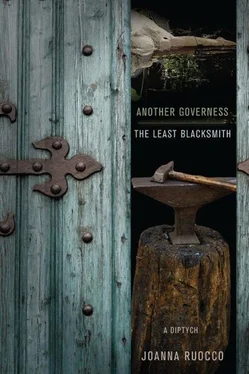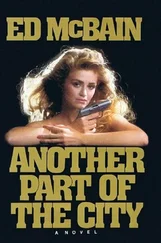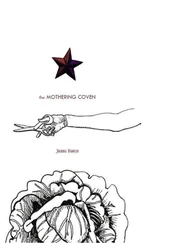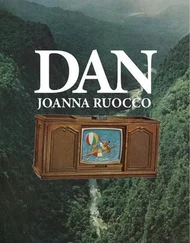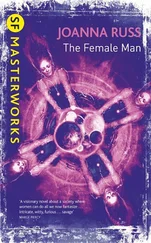While my brother forges hoes, I go into town for the meat and the bread. I walk along the wharves. I admire the civil ensigns flying from the ships. Two small children are playing mumblety-peg on a stretch of mud. Once I would have wanted to join them but now I am my brother's striker. Our father is dead and I have smoked a cigar. I do not want to join the children. The children beckon for me to play. The blade of their knife is broken. It does not stick in the mud no matter how skillfully they make their throws. I tell the children I have no time for games. I will repair their knife if they bring it to the forge. The children do not believe me. They say I have forfeited the game. They are still the champions of the wharves. They mock me as I walk away. I am looking for the doctor's office. I cannot remember which office is the doctor's office. I remember it is not far from the wharves. Every office in the town looks alike. The façades are identical. North of the wharves is the industrial section of the town. The biggest building is the drapery. The drapery is thriving. In the lot behind the drapery, men load crates onto lorries to take to the wharves. I watch the men load the crates. All of the men are smoking cigars as they work. The men see me watching and shout to me. They offer me a job loading crates. The drapery is thriving. There are too many crates for the men to load onto the lorries. They are behind schedule. I tell the men that I already have a job. I am the striker from the forge on the hill. The men seem impressed. The biggest man offers me a cigar. I am thankful that I already know how to smoke cigars. I smoke the cigar easily. The men drop a crate and it breaks open. Uniforms spill from the crate. The drapery produces uniforms for the soldiers. There are many soldiers stationed along the coast and the draper is a rich man. He pays his manager the highest salary of all the managers in the town. The manager makes sure that the uniforms do not vary from one another in any way except for the sizes. The drapery produces excellent uniforms between which no variations can be detected. When the men drop the crates and the uniforms spill onto the dirty lot, the manager's work is ruined. The fouled uniforms are unfit for the soldiers. The men get down on their knees to pick up the uniforms. The manager appears and begins to abuse the men for their stupidity. I walk away out of consideration for the men. I finish my cigar in front of the drapery.
Even though the drapery is thriving, the paint has peeled from the façade of the drapery. The sign is illegible. The manager cannot be blamed for the outside condition of the drapery. In the town, paint peels immediately. Salts draw moisture from the wood and the moisture pushes the paint off the boards. The manager will have the drapery repainted soon. My brother told me that our mother painted the boards alongside the windows of our house. He can remember that the boards looked bright, although he cannot remember what kind of bright. He remembers bright like a summer sky, which means they might have been yellow or blue. I cannot remember the bright boards. The paint peeled. There are no traces of paint on the boards. The forge is on the hill above the bay, but the salts travel in the air. The salts pushed the paint off the boards.
When the blacksmith and his striker are working hard in the forge on the hill, the ground vibrates. The air vibrates. The salt shakes out of the air. Unless you see the crystals on the ground at the end of the day, you know you could have worked harder. The day our father showed my brother the crystals on the ground was the proudest day of my brother's life. My brother showed me where the crystals covered the ground. The crystals were deep enough for my brother to leave his tracks. I told my brother that our father must have poured the salt on the ground. Our father poured the salt when my brother was not looking. My brother struck my face. I woke up on the ground. My mouth tasted like iron. The ground was vibrating. The air was vibrating. I lay looking up at the summer sky. The brightness was made of tiny points like crystals. I did not mean to hurt my brother by telling him our father poured the salt on the ground. I do not know why my brother was hurt. I never heard our father tell stories about salt. I would have been happy if our father showed me the salt he poured on the ground. I would not have cared that it did not shake from the air, not if our father had put it on the ground for me to see.
After I buy the meat and the bread I think about where to go. I have been gone from the forge for much of the day. It should not have taken so long to buy the meat and the bread. I am very slow. I am developing too slowly. Our father did not take an interest in me. He could tell that I would be slow. I should not be my brother's striker. The striker must surpass the blacksmith. I will never surpass my brother. It is too bad I am his only relative. My brother should have a son. How will my brother have a son? He has taken responsibility for the forge. The forge requires all of his attention. Once my brother has expanded the forge, the forge will require even more attention. If the improvements my brother makes are labor-saving improvements, perhaps the improvements will free up time for my brother. But my brother will have to take responsibility for the labor-saving improvements. This new responsibility will occupy the time freed up by the improvements. My brother will be angry I wasted time looking for the doctor's office. I will tell my brother that there was a long line at the bakery. Foreigners enjoy the pastries typical to our region. The bakery is thriving. The baker has raised the prices. Only the foreigners buy the pastries. Before foreigners began visiting our town, the bakery did not need to bake any pastries. Now the baker bakes more pastries than loaves of bread. The baker raised the price of the loaves of bread so that the loaves of bread cost nearly as much as the pastries. The pastries do not seem expensive when you consider the price of bread.
I return to the wharves. Maybe I will recognize the doctor's dead end street. It is pleasant to walk around by the wharves. Foreigners are eating pastries in the sunshine. Seagulls circle the foreigners. The older foreigners have ivory-topped canes. They threaten the seagulls with their canes. They gesture feebly with their canes. The older foreigners are not so old that they need to gesture so feebly. It is obvious that the older foreigners do not mind the seagulls. The younger foreigners carry notebooks. They take notes in their notebooks. From the expressions on their faces, they consider the town a good risk for investment. They shake pastry crumbs for the seagulls. The fish sellers do not like that the foreigners shake crumbs for the seagulls. Seagulls are a nuisance. The town has an ordinance against feeding the seagulls. The fish sellers will not report the foreigners. The foreigners create small nuisances but they have made the town prosperous. The fish sellers are selling cases of fish to the foreigners. The fish lie in rows on the ice. Their mouths are open. Their eyes and their scales are bright. The fish sellers get a good price for the fish. I had never thought that the town could become prosperous. The faded buildings give the town a dilapidated look. The town is not dilapidated. Paint peels immediately because of the salts. The faded buildings are not neglected. Some of the buildings are new. I do not remember all of these buildings from my previous walks by the wharves. They must be new. The new buildings make it hard for me to find the doctor's street. The foreigners like the dilapidated look of the town. The town is actually quite safe. The dilapidation is typical of the region. It is picturesque and not an impediment to growth.
Читать дальше
